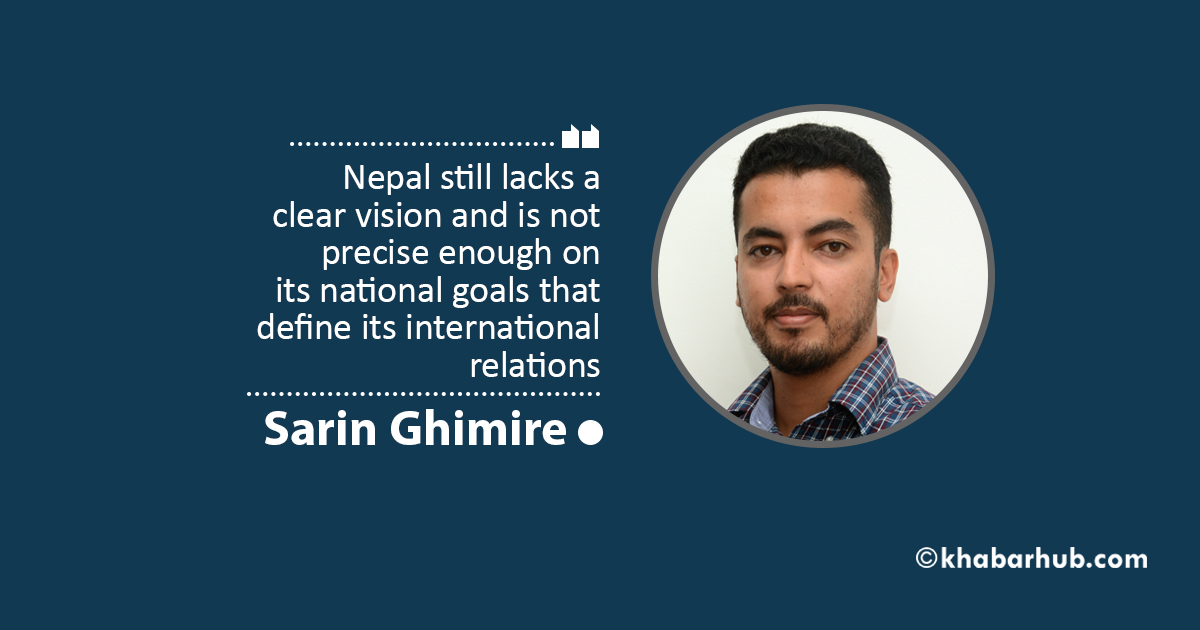Following a series of controversial decisions and lackluster performance, the ruling Nepal Communist Party (NCP) has slowly lost its credibility among the people. The government faces a monumental challenge to regain the astounding amount of trust it was once bestowed upon by the people of Nepal. In the last two years at the office, the ruling NCP has failed to deliver on a substantial amount of promises it has made during election campaigns. If the government still continues to misplace its priorities, as well as deviate itself from democratic principles, the frustration among the people is bound to compound more and spill over to the fore for all of us to see.
The opposition leaders of Nepali Congress (NC) repeatedly, during their election campaigns, stressed that if the communists came to power, there would be no space for anyone to express their dissatisfaction. At that time, analysts thought that the communist forces of Nepal, which had already tasted power within the parliamentary democratic system as well as upheld the principles of separation of power will never try to centralize power in their own hands to impose an authoritarian rule over the people of Nepal.
The people, having witnessed continuous political instability over the past two decades, wanted a stable government, and hoped that a government with a clear mandate for five years would bring stability with a long-term vision to reshape the country’s development trajectory. However, the current government seems to have taken this historic opportunity granted to them by the massive mandate to rule over the country for running the affairs of state affairs to turn into fulfilling their narrow ideological interests with short-term personal gains rather than prioritizing long-term goals in the national interest. Its hard-line approach on the opposition and dissatisfied voices have led people to question if the government is actually attempting to consolidate power for its never-to-end authoritarian communist rule over Nepal in an autocratic style.
The recent bill on media tabled in Parliament is a glaring example to prove this point. It is, in a way, bound to curtail a person’s right to freedom of speech. It will instill fear among the public to speak up against the authority, in fear of serious repercussions. We have already seen several examples of journalists getting locked up for being ‘too expressive’ in voicing their dissatisfaction against government authorities. We have seen a senior bureaucrat being denied the opportunity to lead a public-private partnership-led commercial bank on the basis that the official earlier had reservations on some government policies. We have witnessed a chief justice dismissed by a mere letter from his own secretariat. The security force has time and again invited controversy through extra-judicial killings in the name of ‘encountering’.
Also, a rape case in the Far-West of a young girl, which had the whole country show solidarity in punishing the culprit of such a heinous crime, was never fully solved. Cases of huge smuggling of gold fizzled out over time. The Guthi Bill, that had a clear intention to control the traditional Newari Guthi system, faced heavy opposition from across the country and it was a backlash on the government. The city saw the largest street protest ever, after the Jana Andolan (People’s Movement) in 2006, against the Guthi bill. The government eventually fell on its knees and withdrew it. These are clear examples of incompetence on the state’s side, for which it uses other disguised methods as dirty tricks to cover up its lack of governing skill and administrative acumen.
In terms of foreign policy, Nepal still lacks a clear vision and is not precise enough on its national goals that define its international relations first with its neighboring countries and then with the rest of the world. Diplomacy isn’t as straightforward art as political leaders make it seem to all of us here in Nepal. Neither is it a tool of fanning political populism within the country for polarizing the voters. Apart from upholding international norms and practices that we are part of, diplomacy involves the art of convincing or persuading foreign counterparts into what we believe is beneficial for both the parties — Nepal and others. It is this precision to which we can analyze and act on for safeguarding our national interests.
It is, in other words, give and take process taking place at the international level in which both parties create a win-win situation. We seem stern on our part that we would like to revisit our treaties with India, and through the recently completed EPG (Eminent People Group) report Nepal believes we would have more of equal standing with our southern neighbor. But have we worked on our end for India to take ownership of the report? With China, we seem clear that we would very much like to reap the benefits of the Belt and Road Initiative (BRI). But Chinese authorities have repeatedly told that the Nepali side is extremely slow in progressing with the identified projects.
Also, are we clear about the financial modalities on the projects so as to avoid the debt-trap situation faced by other South Asian countries? India has clearly indicated its intention to keep South Asian Association for Regional Cooperation on the back burner, most likely pushing other multilateral forums such as the BBIN or BIMSTEC. As a nation that hosts the SAARC secretariat, don’t we have the obligation to at least keep the association alive and fully engaged?
In terms of the West, the United States has repeatedly mentioned that Nepal is part of its Indo-Pacific strategy. In Nepal, the foreign minister has always denied this. But why can’t we be in both the initiatives taken by China and the US, and make sure we reap benefits for our country through these forums? No matter how analysts in Nepal term the American initiative as more ‘suspicious’ because of the term ‘strategy’ to the one undertaken by China because it has more of an economic development outlook, both initiatives are largely bound by the same principle—consolidating regional power.
If we are clear on our national interests and confident on our diplomacy acumen, then there is no harm in taking both the American and Chinese initiatives at a time in parallel. But, intense doubt and indecisiveness of our leadership leave enough room for foreign powers to play their games in Nepal. The recent Venezuela saga–first in a statement of outrage by Pushpa Kamal Dahal against the US, and now the invitation of their President’s son, who travel to North Korea after Nepal as they look to consolidate allies, clearly indicates misplaced priorities on the ruling NCP’s side riling all the major countries who give us grants and debts at concessional rates for our development.
The economy, which fares well on GDP growth rate, lacks a clear foundation now. The government has failed to lure foreign investment in order to create more jobs in Nepal. The young workforce, considered as Nepal’s asset, continue to flock to the Middle East and other East Asian countries. Those who go abroad for studies hardly return to Nepal citing lack of opportunities. Political instability may have ended, but not much has changed in terms of governance of the country. We continue to run in an ad-hoc manner where politicians look for short-term gains to sustain their political future, and the bureaucracy is no different either. A complete reform is necessary, in the governing system of Nepal where accountability and integrity must stand tall as two shining pillars of Good Governance to uphold our democratic system. The political class must hear this warning to bring change in their attitude and behavior.
Views expressed in this article are the author’s own and do not necessarily reflect the stance of Khabarhub.









Comment